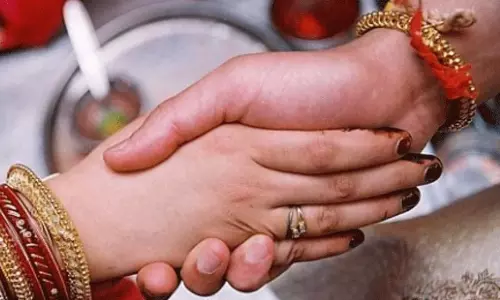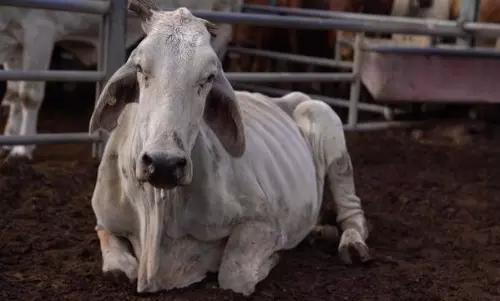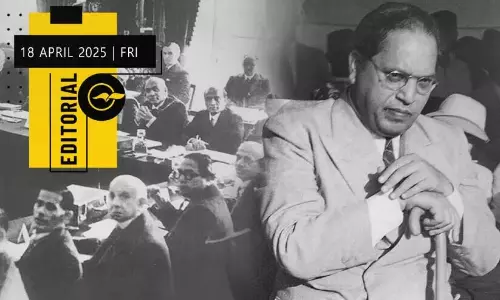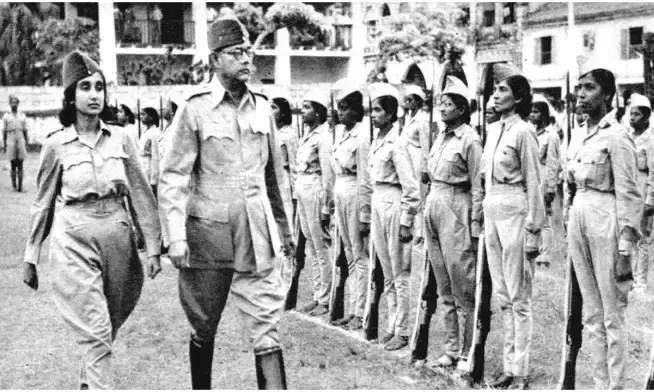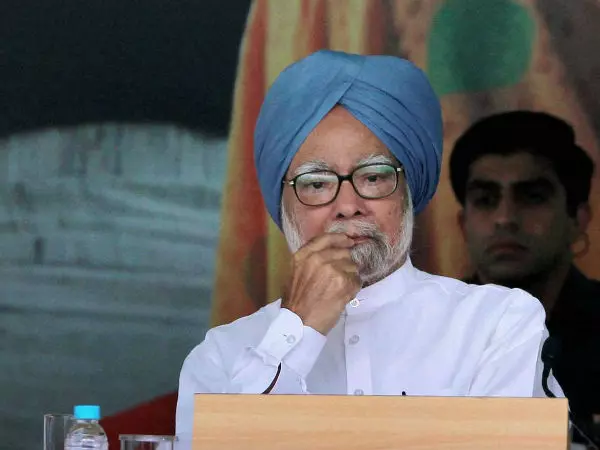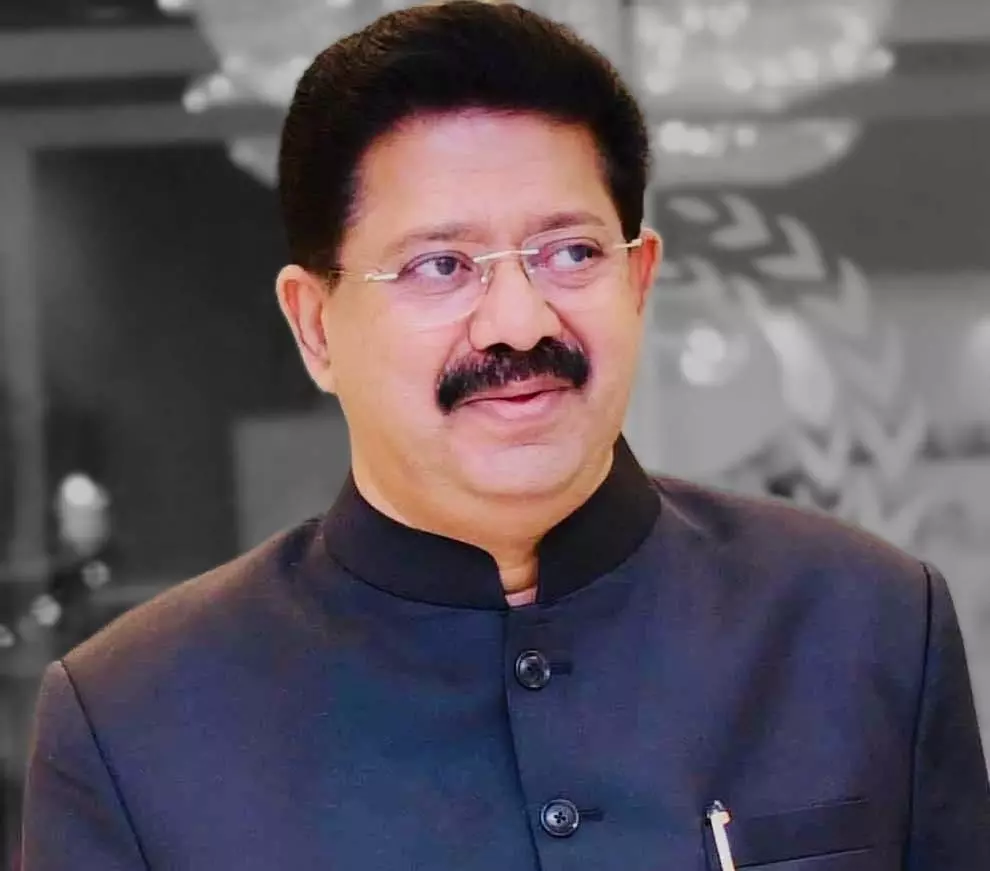
The silent revolution brewing in India’s elections
text_fieldsDr Manmohan Singh who became prime minister after the 2004 election (file photo)
In private conversations, some journalist friends from North India have highlighted that as India approaches a crucial electoral battle, the fallout, reminiscent of the 2004 general elections, will occur on the political map. Since almost all national media in India have fallen into the hands of corporate companies linked to the ruling party, many political movements at the national level go unreported today.
Back in 2004, despite the widespread popularity that defied all odds, the Vajpayee-led NDA government was ousted, paving the way for the Congress-led UPA coalition to seize power. Today, though the possibility of a similar silent revolution is taking shape among the voters, there are doubts whether the 'India' front will be able to use this to create a surprise in the elections. Even when the election scene was heating up, the 'India' Front could not become a strong movement by raising burning issues, including the electronic voting machine. While many blame the Congress for this, other opposition parties are equally at fault.
The growing discontent with the current Modi government among voters suggests that the conditions are ripe for another silent revolution. Despite several opinion polls predicting a third term for the BJP, the reality on the ground suggests otherwise. The widespread dissatisfaction of the electorate stems from various critical issues affecting governance and social welfare, such as unemployment, inflation, fuel prices, and the rising cost of essentials. The electoral bond scam has further tilted public opinion against the BJP. Additionally, the youth are increasingly disheartened by the escalating unemployment and the scarcity of new job opportunities. The agrarian crisis also remains a pressing concern, especially after recent farmers’ protests against the farm laws and worries over minimum support prices and corporatization.
Most rural voters in North India, a significant demographic, are disillusioned with the Modi government’s handling of these crises. The administration’s failures in health, education, and social security have sparked widespread discontent among low and middle-income groups. Social and economic issues, including the government’s stance on citizenship laws and social policies, have deepened societal divisions. Often, religious and caste polarization marginalizes certain electorates, fueling in them a desire for change in the current political landscape. The use of enforcement agencies to target political adversaries, the undervalued sale of state enterprises to cronies in the corporate sector, and the unofficial censorship of dissenting news are all contributing to the burgeoning public sentiment against the Modi administration. Hence, the BJP’s ultimate battle in this election will not be against other political parties or fronts, but with the people of India themselves.
Today’s electoral climate bears a striking resemblance to that of 2004. The ruling party’s premature declarations of victory, bolstered by a favorable media narrative and supportive opinion polls, failed to capture the true sentiments of voters grounded in daily struggles and economic hardships. The unexpected triumph of the Congress-led coalition in 2004 clearly demonstrated the disconnect between the perceived political atmosphere and the actual public mood.
As India inches closer to the election milestone, the voices of discontent may turn into a roar of change. The unexpected political shifts of the 2004 elections serve as a powerful reminder of the dynamic and unpredictable nature of Indian democracy. It was a wake-up call to all political parties that beyond rallies, slogans, and social media campaigns, it is the fundamental issues of governance, livelihood, welfare, and inclusion that sway voters. The lessons from 2004 are crucial today. There are several analyses of how the government tasted that defeat. Several factors were cited as reasons for the defeat, including farmers' distress, anger of the poor over the BJP government's "India Shining" campaign, economic crisis, social welfare, communal harmony and other key issues.
After all, one particular factor served as the main reason for the NDA's defeat in 2004. This is very similar to 2024. India is a federation of states, so in effect the Lok Sabha election results are a combination of state election results. The situation is different in different states. Alliances can alter outcomes, as was demonstrated in 2004. How things shape up in the states will determine whether the repeat of 2004 will happen in 2024 or not!
With Delhi Chief Minister Arvind Kejriwal in jail on charges without any evidence and the elections just around the corner, the timing and motivation behind the Modi government's attempts to impose controversial laws like the Citizenship Amendment Act (CAA) must be seen in this context to analyze. These maneuvers are likely aimed at distracting attention from the public discontent by focusing on core ideological issues and labeling a section of the electorate as national adversaries. The effectiveness of these tactics often depends on the reaction of the public and the ability of the opposition to counter it.
As for the opposition, there are still doubts whether it has capitalised on the opportunity to reach out to the people and formulate a viable alternative focusing on the immediate concerns of the voters. While history stands on the verge of repeating itself, the silent revolution in elections underlines the evolving contours of Indian democracy. This election will be a reminder that in the world's largest democracy, the voice of the voter, who is often silenced till the end, has the ultimate power to shape its destiny.




